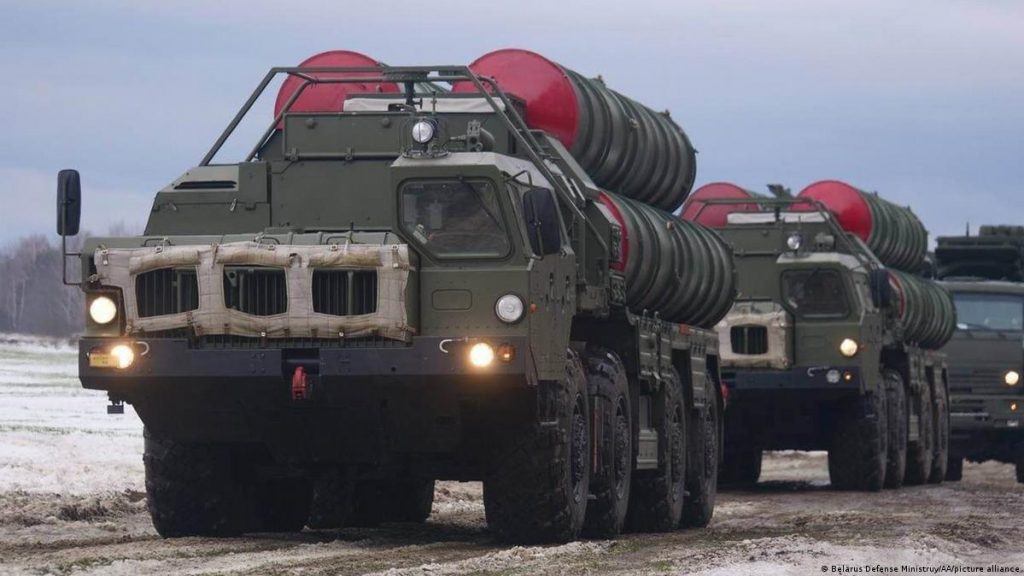
Reader, Please note: This interview was originally done in German for a paper called, Junge Freiheit (Young Freedom). But much of what it has to say also applies to NATO as a whole.
*
JF: What do you think about Russia’s supply system? Some Western media have been claiming that inside the Kremlin, there are hot debates concerning the desirability and necessity of general mobilization.
MvC: You must realize that practically everything you, I, and most Westerners—who know no Russian and have no access to the original sources in the original language–learn about the conflict must pass through a series of lenses first. They are, 1. Ukraine’s own intelligence services and propaganda apparatus; 2. The West’s intelligence services; and 3. The West’s news agencies. Personally I would not consider any of these as particularly reliable; in any war, the first casualty is always the truth.
JF: Seen from a German point of view, how important is this war?
MvC: Should Russia win this war and be left in possession of Ukraine, Putin and his eventual successors will pose a vital danger to the West. As, to use an analogy, Hitler did after his defeat of Poland in 1939. That is why I am all in favor of Germany delivering weapons to Ukraine. However, there are several conditions that must be met first. Number one, Germany’s own defenses must not be significantly weakened; no point in holding the extremities if the center folds. Number two, to maximize cost-effectiveness and prevent duplication the deliveries should be coordinated with the rest of NATO. Third, it is a question, not just of delivering weapons but of sending those that Ukraine needs most.
JF: Considering what we are told about the war, which systems would be most useful for Kiev?
MvC: Basically they are of three kinds. First, anti-aircraft defenses. Second, those that will enable the Ukrainians to identify and locate Russian targets, especially supply convoys, depots, etc., way behind the front. Third, those that will enable those targets to be hit and destroyed from a distance.
JF: The Americans and the Brits are sending many weapons to Ukraine. What has been the impact of those weapons so far?
MvC: Clearly they are very important indeed. Had it not been for them, the only strategy left to the Ukrainians would have been to allow the Russians to overrun their county as they themselves resorted to guerrilla and terrorism. Presumably the outcome would have been Russian reprisals and even greater death and destruction than is actually the case.
JF: People often speak of the drones Turkey has been providing Ukraine with. How important are they, really? Are we talking about an effective system, or is it just a question of reinforcing Ukrainian morale by delivering a blow here, a blow there?
MvC: It seems to be a very good system with many advanced capabilities. That is why, according to the media, the chief of Ukraine’s air force Lieutenant General Mykola Oleshchuk, has called it “life-giving”. The popularity of the drone in Ukraine led to a song, “Bayraktar” being written about the drone while throwing insults at the Russian army and the invasion. Yet none of this means that it is some kind of silver bullet that will quickly win the war—several have been shot down.
JF: Recently we have seen the Ukrainians using very simple technologies such as pickup-mounted rockets. Operated by crews of four or five, they seem to be causing the Russians lots of trouble. Obviously war is assuming new faces. What else can we expect?
MvC: Almost any war, provided only it lasts long enough, will lead to one of two outcomes (or both). On one hand, it will accelerate the development and deployment of new weapons and weapon systems. On the other, it will cause old systems to be dragged out of the magazines, refurbished, and re-employed. Think of 1940. As the very time when the British, to combat the German submarines, were developing the world’s first shortwave radar they also leased fifty World War I-vintage destroyers from the U.S.
JF: It seems that the most recent Russian weapons, such as hypersonic cruise missiles and the T-14 tank are not going on active operations. Why is that?
MvC: The hyper fast weapon has been tested several times and seems to work. Possibly the reason why it has not been used more often is because its range, about 2,000 kilometers, is way beyond that is needed in this particular conflict.
The T-14 appears to have experienced some technical problems which delayed its deployment. Serial production only began around the time the war broke out.
JF: Do you think Kiev will able to go on the offensive again? As by reconquering occupied territory and holding it against the Russians?
MvC: War is a dynamic business. Even during the years of stalemate in 1915-18 both sides on the Western Front—not to mention the Eastern one–were occasionally able to make limited gains. But will the Ukrainians retake all or most of the land they have lost? I doubt it.
JF: During our last interview, held early in the war, you warned against underestimating the Russians. Are you still of this opinion? In your view, how far is the Kremlin prepared to go?
MvC: In any war, underestimating the enemy is the greatest error of all. History is full of the cadavers of those who did so.
JF: Will they go all the way to the Crimea??
MvC: What do you mean? The Russians already occupy both the peninsula itself and the corridor leading to it. Albeit that their control of the latter is somewhat shaky.
